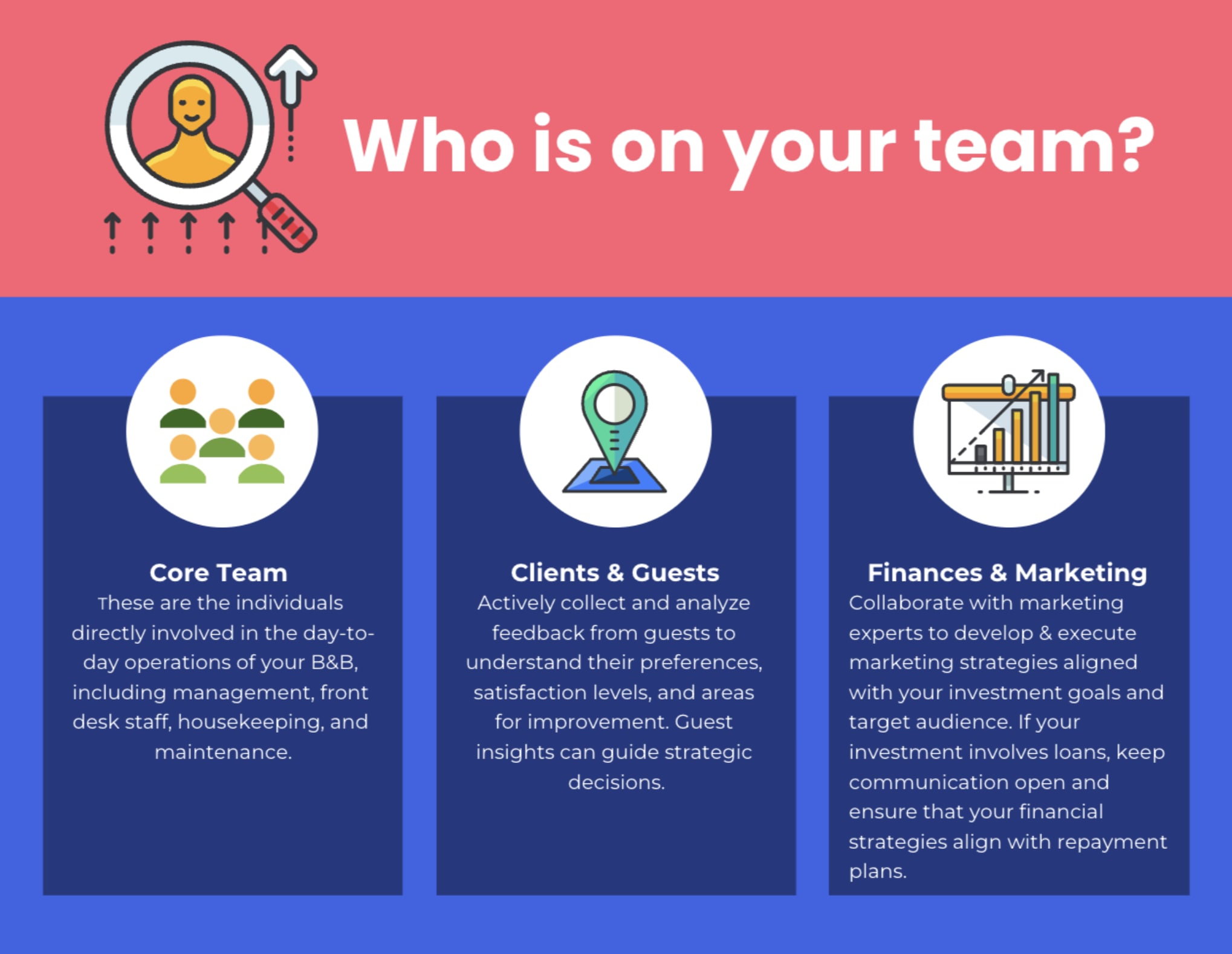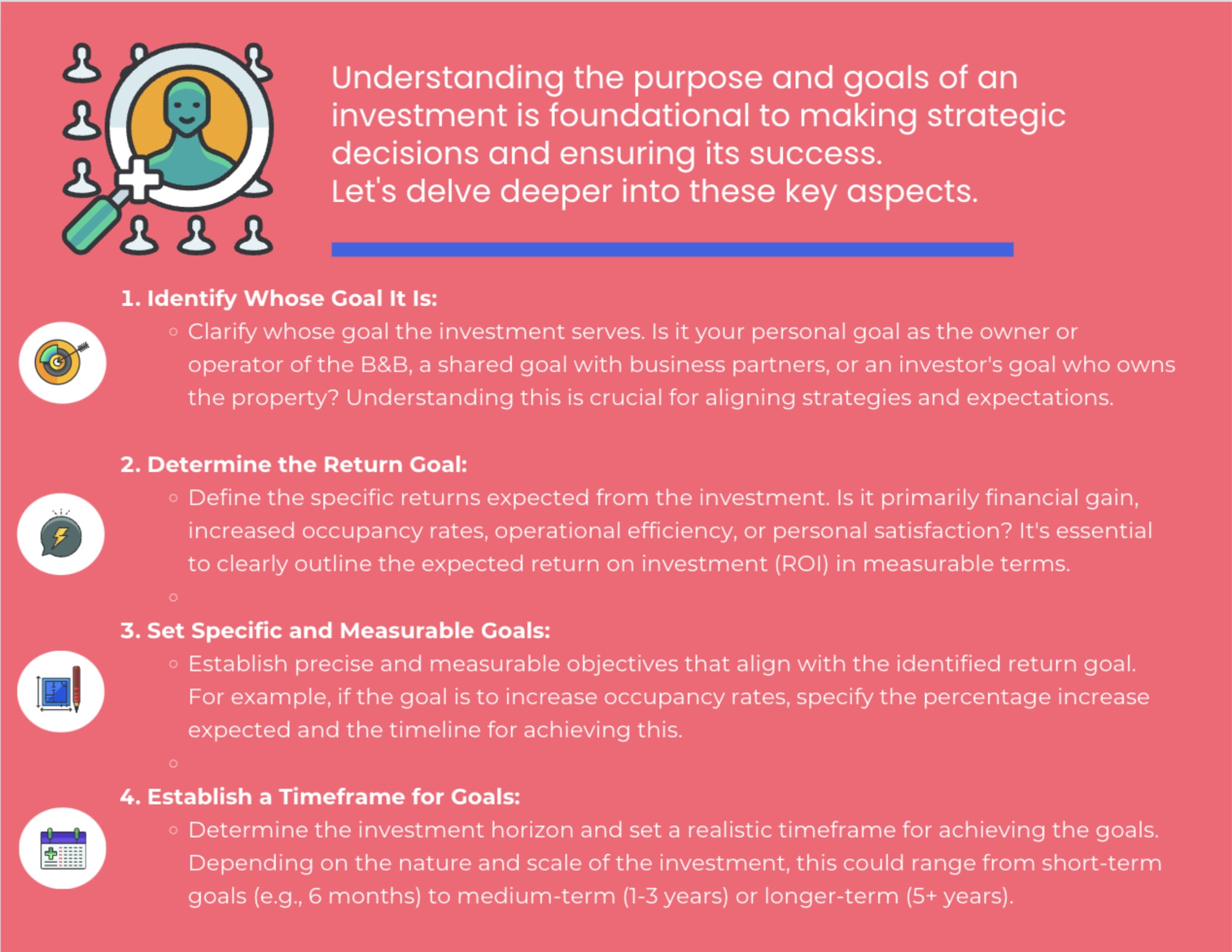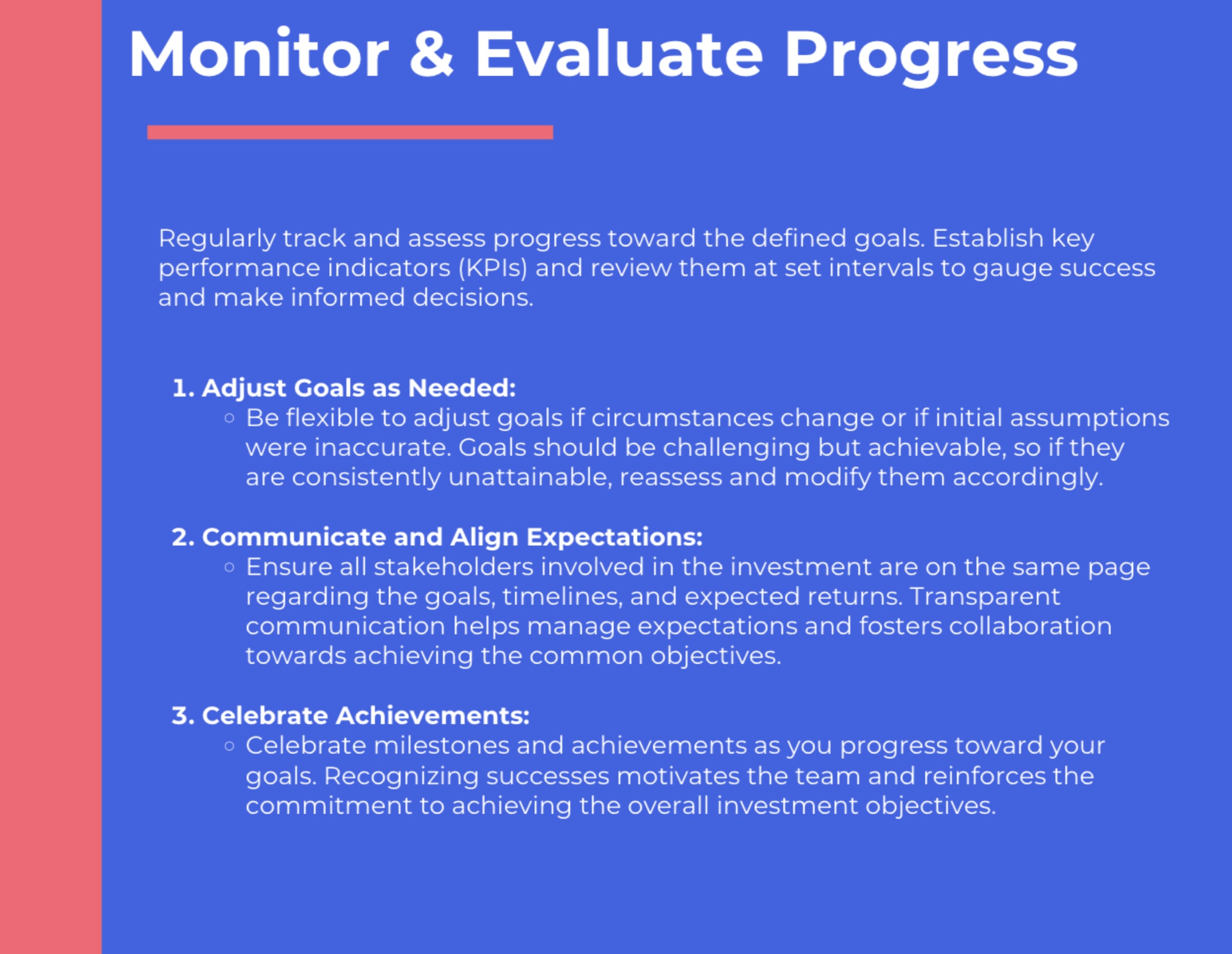Invest in Your Business to Grow Your Business

Invest in Your Business to Grow Your Business
Our objective is to stimulate your creativity and brainstorm different strategies for your business, personal growth, staff, and partners.
Content was originally featured in ALP's webinar "Invest in Your Business to Grow Your Business" presented by Erik Spence.
Over the past 12 months, my strong focus has been on investing in both property and personal development. Our objective is to stimulate your creativity and brainstorm different strategies for your business, personal growth, staff, and partners.
Let's kick things off. The initial step in embarking on investment endeavors is to define clear goals. You must understand why you're pursuing these investments and whose objectives you are serving. Is it primarily your personal goal, that of a business partner, or perhaps driven by your investors? It could even align with the property owner's aspirations, and you've been entrusted to realize a specific target.
Once you've established whose goal it is, the next crucial step is to determine the desired return from this investment. Are you seeking financial gains, increased occupancy, better organizational structure, or is it more of a personal ambition? It's vital to be precise about what kind of return you aim to achieve. Investments are made with the intention of gaining something valuable, even if the minimum expectation is to break even. Ideally, you want a positive outcome, making it essential to clearly define your goals.
Setting a concrete goal is crucial; otherwise, it remains just an abstract notion. You need a target to strive for, something to guide your actions and decisions. Additionally, you must establish a timeline for when you'll assess the success of your investment goal. Larger investments often necessitate a longer-term perspective, possibly spanning several years before you see substantial returns. This timeline is intrinsic to the investment process, aligning with how investments function within the system.
For instance, investing $10,000 in a bank today and expecting a 10% return tomorrow is unrealistic. Investments have a designated timeline, usually annually. In the realm of business, you might need to hold onto an investment for 2 or 3 years to witness the returns materialize, contingent on the nature of the investment. Thus, it's imperative to have a clear understanding of when you'll measure the success of your specific goal and evaluate the progress accordingly.
Let's focus on the initial set of objectives involving finances—specifically, financial goals that require monetary investments. Renovations are currently a prominent topic in this regard.
Renovations encompass enhancements to your property, ranging from upgrading rooms to modernizing existing spaces. Whether it's updating guest rooms, revamping your back office, or improving wireless internet access, any upgrade comes with a financial cost. Achieving success with renovations necessitates a monetary commitment.
Additions share similarities with renovations but present distinct advantages. Renovations may extend beyond the targeted room, impacting shared plumbing in multiple guest rooms. Thus, while calculating renovation costs, it's essential to consider potential interruptions to guest flow, affecting not only one but possibly two or three guest rooms.
On the other hand, additions involve expanding your property, offering substantial benefits without necessarily disrupting existing guest reservations. This might entail adding a restaurant, a venue for events like weddings, or additional guest rooms or service facilities such as spas or massage rooms. However, these expansions often constitute significant financial investments.
Introducing new products can enhance the value of your offerings and serve as a strategic marketing investment. This could involve providing deluxe luxury robes or establishing a signature line of guest room amenities and soaps. While new products may not immediately yield a direct monetary return, they enhance the overall value of your rooms and can be effectively marketed.
Similarly, new services, like spa treatments or bike rentals, add to the guest experience and require an investment of both time and finances. Another avenue for growth is introducing new events, such as weddings, murder mysteries, or culinary weekends. These events, though financially demanding, present unique marketing opportunities.
Marketing itself is a substantial investment, encompassing aspects like developing a new website, designing printed materials, and optimizing booking engines. Photography is a crucial part of this process and shouldn't be overlooked. Staffing is equally significant—a strategic investment in personnel can greatly enhance operational efficiency and allow you to focus on strategic business development.
Considering the value of your time, hiring even one part-time employee can significantly benefit your business. This applies even to smaller operations with a few rooms, as delegating tasks can free up your time to work on the business rather than just in it. Taking into account payroll taxes and workman's comp, investing in staffing can be a wise choice, enhancing productivity and ultimately, the success of your business.
Let's assess your team. It's more extensive than you may initially consider. It encompasses not only your staff, managers, and spouse but also partners, guests, and even volunteers for your goal's operation and achievement. Even small projects involve numerous individuals. Include them in your strategies as you formulate plans. Lastly, maintain flexibility despite strict goal and ROI definitions. Plan variations (plan a, plan b, etc.) are vital as you adapt and learn along the way, understanding that the best plans may need adjustments to succeed. Be prepared for change as you approach the execution of your goals and plans.
I strongly advocate for investing in people and their potential impact on your business. If you contemplate what you could achieve with an extra 20 to 25 hours a week to work on your business, not just for it, hiring even one part-time employee can make a substantial difference. Despite common objections, even smaller businesses with a few rooms can benefit significantly.
Consider the financial aspect—employing someone at around $10 an hour, accounting for taxes and other costs, might sum up to about $15 an hour. This translates to around $450 in payroll for 30 hours a week. However, the return on this investment can be immense. For instance, if those 30 hours allow you to attend a wedding show and book a $10,000 wedding event, you've gained $10 for every $1 spent on staffing, not to mention the potential guests coming to the wedding who have the potential to become future overnight guests of yours.
The key takeaway is to envision the long-term benefits. While not every opportunity may yield a huge return like booking a significant event, investing in your business growth and dedicating more time to strategic activities can ultimately drive substantial success. Always consider the potential value that well-invested time and resources can bring to your business.
Measure returns meticulously and give your investments adequate time to mature, typically 1-3 years for projects, adjusting as needed based on the investment's size and scope. Employ the concept of capitalizing, especially for significant purchases, by spreading out the expense over multiple years while seeking guidance from your accountant. Strategize how to handle gains, whether to reinvest or save, and plan your next steps to maintain business growth. Always prioritize reinvesting in your property and regularly celebrate successes to keep momentum and growth thriving.
Investing in partnerships, specifically those within your community. These partnerships aren't about your vendors from whom you purchase products or services; instead, we're focusing on local collaborations.
It's about putting your name out there, forging connections with nearby restaurants, collaborating with Convention and Visitor Bureaus (CVBs), and engaging with your local Chamber of Commerce. Your bed and breakfast, inn, or boutique hotel should be the first thing people think of in your community. When someone walks into a local establishment seeking lodging recommendations, your goal is to ensure that your establishment is at the forefront of their minds. This is the essence of a successful partnership.
However, achieving this requires an investment of time. While it may not always involve a monetary cost to engage with various associations and outlets for potential business, it does necessitate dedicating some of your time. Engage in some foot traffic, log some steps on your watch, and explore your town, dropping by to introduce yourself to local shop owners. Establishing these connections is crucial for fostering partnerships and promoting mutual support.
Volunteering might seem like an unusual investment in your business, but it can indeed have benefits. For instance, during festivals, your busiest times, your guests may be spending time at the festival rather than at your property. Volunteering your time during these events can be a way to gain some free advertising and put your business on the local map.
Investing in education through participation in conferences and membership in professional associations offers a multitude of benefits for individuals seeking personal and career development. These avenues provide opportunities to expand knowledge and hone skills through exposure to the latest trends and best practices within one's field. Attendees can engage with experts and peers, fostering valuable connections that not only facilitate knowledge exchange but also open doors to mentorship and career opportunities.
In addition to knowledge and skill enhancement, these educational forums encourage networking, a crucial element in professional growth. Building a strong network within one's industry can lead to enhanced career prospects and a robust support system in times of need. Furthermore, participation in conferences and associations can help professionals stay informed about dynamic industry landscapes, adapt to changing conditions, and remain competitive in a rapidly evolving world.
These educational investments not only advance individual careers but also contribute to the collective progress of entire industries. By attending conferences and joining associations, professionals can not only stay at the forefront of their fields but also inspire innovation, share their expertise, and contribute to the overall development and credibility of their respective industries. In essence, these opportunities serve as a two-way street, enabling individuals to learn and grow while giving back to the community that sustains their professional journey.
In summary, investment success requires careful return assessment, patience for maturity, and smart financial planning. Reinvesting in property and fostering community partnerships are vital for sustainable growth and visibility.
Images



